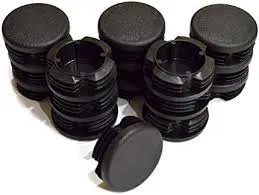Mobile:+86-311-808-126-83
Email:info@ydcastings.com
French
composite impeller
Understanding Composite Impellers An Innovative Advancement in Engineering
In the realm of engineering and manufacturing, the quest for improving efficiency and performance has led to the development of various advanced materials and designs. Among these innovations, the composite impeller has emerged as a significant breakthrough, particularly in applications involving pumps, turbines, and other fluid handling systems. This article will explore the features, advantages, and applications of composite impellers, highlighting their role in modern engineering solutions.
Composite impellers are made from a combination of materials, typically featuring a matrix of polymers reinforced with fibers such as glass, carbon, or aramid. This composite structure provides unique properties that differentiate them from traditional metal or plastic impellers. One of the primary advantages of composite impellers is their weight-to-strength ratio. The use of lightweight materials allows for easier handling and installation while maintaining or even enhancing the structural integrity and performance of the impeller.
One of the most significant benefits of composite impellers is their resistance to corrosion and erosion. Traditional metal impellers often succumb to wear due to continuous exposure to harsh environments, especially in applications dealing with abrasive or corrosive fluids. Composite materials, however, exhibit superior resistance to such wear, extending the lifespan of the impeller and reducing maintenance needs. This characteristic is particularly crucial in industries such as chemical processing, marine applications, and wastewater treatment.
Moreover, composite impellers can be designed for optimal performance, taking advantage of advanced manufacturing techniques such as computer-aided design (CAD) and computational fluid dynamics (CFD). These technologies allow engineers to simulate fluid flow and optimize the impeller’s shape for maximum efficiency. An efficient design translates to enhanced performance, reducing energy consumption and operational costs.
composite impeller

The thermal properties of composite materials also contribute to the functionality of composite impellers. Unlike metals, which can expand and contract significantly with temperature fluctuations, composite materials are more stable. This stability is crucial in environments where temperature variations can affect performance. With a lower coefficient of thermal expansion, composite impellers can operate effectively across a broader range of conditions.
In addition to their mechanical and thermal advantages, composite impellers can be tailored for specific applications. The flexibility in material selection and manufacturing techniques allows for customization in terms of size, shape, and performance characteristics. This versatility is particularly advantageous in industries that require specialized solutions tailored to unique operational demands.
The aerospace, automotive, and renewable energy sectors are among the industries that have started to embrace composite impeller technology. In aerospace applications, for example, reducing weight while maintaining strength is critical for fuel efficiency and performance. Similarly, in the automotive industry, composite impellers are being utilized in turbochargers and various fluid management systems to improve efficiency and reduce emissions.
In conclusion, composite impellers represent a significant advancement in engineering material science. Their unique properties, such as lightweight design, corrosion resistance, and customizable features, make them a popular choice in numerous applications. As industries continue to seek more efficient and sustainable solutions, the adoption of composite impellers is likely to grow, paving the way for innovation and enhanced performance across various sectors.











